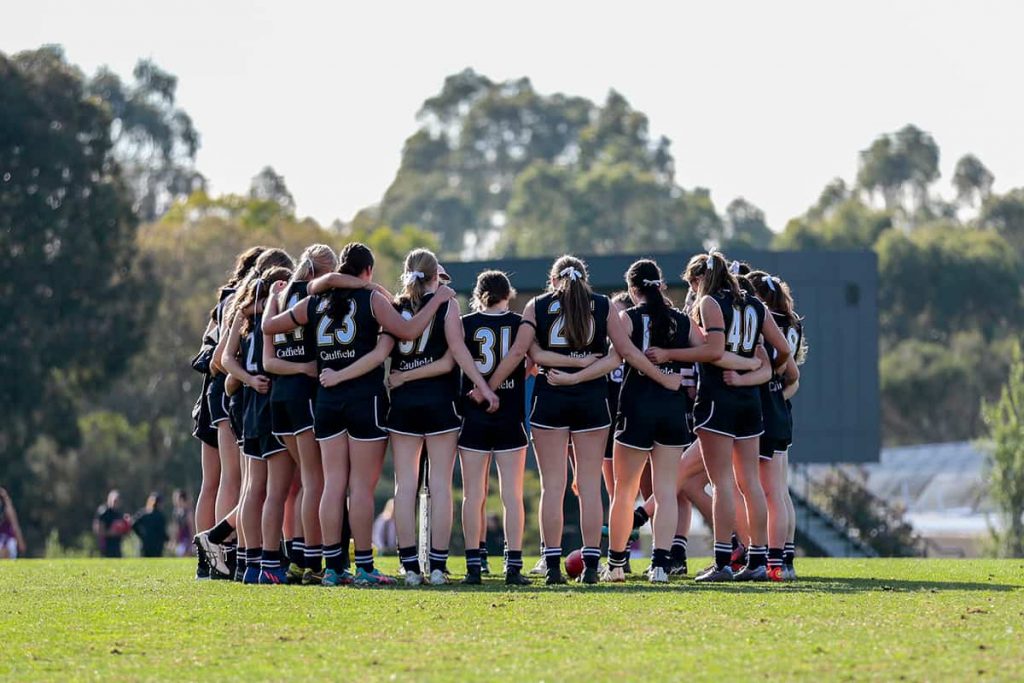- Comprehensive Guides
- Success Stories
- Training Tips
- Academic Resources
- Webinars and Events
Sports Scholarships and Education: The Path to Professionalism
For many young athletes, the dream of playing sports at a professional level is deeply intertwined with their academic journey. Sports scholarships provide a pivotal opportunity for these individuals to both pursue higher education and hone their athletic skills. This long read delves into the mechanisms of sports scholarships, their benefits, challenges, and their role in shaping professional athletes.
What Are Sports Scholarships?
Sports scholarships are financial aids awarded to students based primarily on their athletic ability, rather than academic achievements or financial need. These scholarships cover various costs associated with college education, such as tuition, room, board, and sometimes books and equipment.
Types of Sports Scholarships
Full-Ride Scholarships: These cover all college-related expenses and are most common in high-profile sports like football and basketball.
Partial Scholarships: These cover only a portion of the costs and are more common in lower-budget sports.
Equivalency Scholarships: Coaches divide these scholarships among multiple athletes, providing each a “slice” of the financial aid pie.
How Sports Scholarships Are Awarded
The process of awarding sports scholarships is competitive and rigorous. Coaches scout for talent at high school games, sports clinics, and tournaments. Prospective student-athletes also promote themselves by sending videos of their performances, athlete resumes, and by maintaining high levels of performance in their sport.
Criteria for Awarding Scholarships
Athletic performance: Demonstrated skill and potential in a sport.
Academic qualifications: Sufficient grades to meet NCAA or other governing bodies’ eligibility requirements.
Character and leadership: Strong personal qualities that indicate a likelihood of both academic and athletic success.
The Role of Education in Developing Professional Athletes
While the primary allure of a sports scholarship may be athletic development, the educational aspect is equally critical.
Balancing Academics and Athletics
Athletes on scholarship are required to maintain a certain GPA to remain eligible to play. This requirement emphasizes the importance of education and ensures that athletes are prepared for life after sports, whether in professional athletics or another career.
Specialized Programs and Support
Many universities offer specialized programs and support structures to help student-athletes succeed:
Tutoring and academic support: To help manage the dual demands of sports and studies.
Career counseling: Guidance on career options post-graduation, including sports management and coaching.
Life skills training: Programs that teach skills such as financial literacy, media handling, and personal branding.
Despite their benefits, sports scholarships come with challenges:
Injury risk: Injuries can jeopardize both athletic performance and scholarship status.
Pressure and stress: The dual demands of academics and high-level sports can lead to burnout.
Limited career lifespan in sports: Not all athletes make it to the professional level, and sports careers can be short-lived due to the physical demands.
Success Stories: From Scholarships to Professionalism
Numerous professional athletes began their journeys on sports scholarships. These stories often highlight not only their athletic prowess but also their academic commitment. For instance, student-athletes who leverage their education to extend their involvement in sports through coaching, sports journalism, or management.
Sports scholarships serve as a crucial bridge between academic achievement and athletic success. They not only foster professional sports careers but also ensure that athletes have the educational background to thrive outside the arena. By supporting both the physical and intellectual development of athletes, these scholarships play an essential role in the sports industry and education system, preparing young athletes for a range of professional paths.
Understanding Sports Scholarships: An In-Depth Guide
Sports scholarships provide a pathway for talented athletes to pursue higher education while continuing to train and compete at a high level. These scholarships are awarded to student-athletes who show exceptional skill in their sports and often come with the expectation that the recipients will contribute significantly to their college’s sports teams. Here’s a detailed look at what it means to get a sports scholarship, including its benefits, obligations, and impact on a student’s life.
What Is a Sports Scholarship?
A sports scholarship is a type of financial aid awarded by colleges and universities to talented athletes. These scholarships can cover partial or full tuition fees, room, board, and sometimes additional costs like books and sports equipment. The primary aim is to attract top athletic talent to the institution and enhance the school’s competitiveness in sports.
How Are Sports Scholarships Awarded?
Recruitment: The process typically starts with recruitment. Coaches scout potential talent at high school games, sports camps, and tournaments. Athletes can also promote themselves by sending sports resumes, highlight reels, and maintaining strong performances in their sport.
Evaluation: Coaches evaluate athletes based on their performance, potential, and how well they might fit into the team. This evaluation is not just about sports but also includes assessing academic records to ensure the athlete meets the institution’s educational standards.
Offer and Acceptance: If a coach decides to offer a scholarship, the student and their family will review the terms before accepting. These terms outline what is expected in terms of participation in sports and academic performance.
Types of Sports Scholarships
Full-ride Scholarships: These cover all college-related expenses, including tuition, room and board, and books.
Partial Scholarships: These provide limited financial support, covering only a portion of the costs associated with attending college.
Benefits of Receiving a Sports Scholarship
Financial Support: The most obvious benefit is financial. Sports scholarships can significantly reduce or even eliminate the cost of higher education.
Educational Opportunities: Athletes receive the chance to earn a degree from a college or university, which can be crucial for life after sports.
Elite Training and Competition: Scholarship athletes have access to top-tier coaching, facilities, and competition. This environment can be crucial for those aiming to turn professional.
Networking: Being part of a college sports team provides numerous networking opportunities with alumni, coaches, and sports professionals. This network can be beneficial for athletic, academic, and career pursuits.
Obligations of a Sports Scholarship Recipient
Maintain Eligibility: Athletes must meet specific academic standards to remain eligible to compete, which includes maintaining a minimum GPA.
Participate in Practices and Games: Commitment to attending all team practices, meetings, games, and related activities is mandatory.
Adhere to Conduct Codes: Athletes are often held to higher standards of behavior, both on and off the field.
Balance Academics and Athletics: Managing time effectively to fulfill both academic and athletic commitments is a crucial skill for scholarship athletes.
Challenges of Sports Scholarships
Physical and Mental Demand: The dual demands of athletics and academics can be stressful and physically demanding.
Risk of Injury: Injuries can endanger an athlete’s ability to compete and, by extension, their scholarship.
Limited Personal Time: The rigorous schedule of training, studying, and competing leaves little time for other activities.
Receiving a sports scholarship is a prestigious and rewarding opportunity for talented athletes. It not only assists financially but also provides a platform for professional development in sports and beyond. However, it requires significant commitment and discipline to balance the demands of both academics and athletics, ensuring a successful college career.
Types of Scholarships
Scholarships come in various forms, each designed to meet different needs or recognize different achievements. Understanding the types of scholarships available can help students and parents navigate the often complex world of financial aid. Here’s a detailed look at the main types of scholarships:
1. Merit-Based Scholarships
These scholarships are awarded based on academic, artistic, athletic, or other abilities, and often factor in an applicant’s extracurricular activities and community service record. The most common criteria used to decide merit-based scholarships include:
Academic achievements: High GPAs, outstanding SAT or ACT scores.
Artistic abilities: Exceptional skills in the arts, performance, etc.
Athletic prowess: Superior athletic abilities.
Leadership and service: Demonstrated leadership skills and service to the community.
2. Need-Based Scholarships
Financial need is the primary criterion for these scholarships, which are intended to help students who cannot afford the cost of higher education. Applicants must usually provide documentation of their financial status, such as family income, to qualify. Institutions and organizations use a standard method to evaluate financial need and determine the award amount.
3. Student-Specific Scholarships
These scholarships are awarded by criteria directly related to a student’s background, gender, race, family, and medical history, among other factors. Common examples include:
Scholarships for underrepresented groups: Aimed at increasing educational opportunities for racial and ethnic minorities.
Gender-specific scholarships: For students of a particular gender, often aimed at fields where that gender is underrepresented.
Scholarships for students with disabilities: Designed to help students with physical disabilities, learning disabilities, etc.
4. Career-Specific Scholarships
These are scholarships a college or university offers to students who plan to pursue a specific field of study. Often, the goal is to encourage skilled professionals in particular areas, such as nursing, teaching, or engineering. These scholarships might require recipients to commit to working in a certain field for a specific period after graduation.
5. College-Specific Scholarships
Individual colleges and universities provide these scholarships to highly qualified applicants to encourage them to attend. These scholarships often require recipients to engage in specific activities, maintain certain GPA levels, or pursue specific academic goals. They are often very competitive.
6. Program-Specific Scholarships
Awarded directly by a specific college department or program, these scholarships are tailored for students enrolled in specific programs. They are typically supported by donors who aim to foster talent in a particular field.
7. Athletic Scholarships
Offered to top-notch athletes by colleges and universities with strong sports programs. These scholarships are contingent upon the athlete playing the sport during their time at the college and often have specific criteria related to the athlete’s performance and team contribution.
8. Brand Scholarships
These scholarships are sponsored by a brand that aims to attach its name to the scholarship. This is a form of marketing strategy, as well as an effort to give back to the community. Examples include scholarships offered by Coca-Cola or Burger King.
9. Creative Contest Scholarships
These scholarships require students to submit a creative entry in a specific area, such as essay writing, video production, or design. They encourage creativity and innovation, rewarding students for their unique perspectives and ideas.
10. Military Scholarships
Offered to members of the military and their families, these scholarships recognize the sacrifices made by military personnel and provide educational opportunities post-service or to family members. They often cover tuition, books, and other educational expenses.
The variety of scholarships available makes it possible for many types of students to find potential sources of funding that align with their unique skills, interests, and needs. Understanding these different types can help students and their families plan better for college and maximize their chances of receiving financial aid.
Our friends:
Slottyway opinie
reynaelena.com





